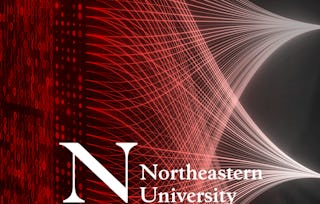Probability and statistics provide an excellent tool for understanding, modeling and communicating uncertainty in engineering systems. In many applications there is the added challenge of considering random quantities that vary over time and/or space. Examples can be found in seismic applications, financial markets, heterogeneous materials, and image processing, among many others. This course provides an introduction into some of the ways in which random processes and random fields are measured, quantified and communicated. Through video lectures, activities, and interactive content, students will learn about correlation functions, spectral density functions, local average processes and Monte Carlo simulation. There will be an emphasis on understanding each concept, estimating these quantities from data, and using this data as the basis for generating realistic sample random processes.

Random Processes

Skills you'll gain
Details to know

Add to your LinkedIn profile
4 assignments
See how employees at top companies are mastering in-demand skills

There are 4 modules in this course
In this module, you will be introduced to some basic definitions of random processes and examples of engineering applications in which they are important. There will also be a review of probability density functions to introduce the marginal distribution that describes a random process.
What's included
5 videos1 reading1 assignment1 discussion prompt
In this module, you will be introduced to the correlation function and correlation length as a means to describe random processes. You will learn to recognize how changes in the correlation function affect the random process, and vice versa. Finally, there will be a case study in which the correlation function & length are calculated based on a given set of data.
What's included
5 videos1 reading1 assignment1 ungraded lab
In this module, you will be introduced to the spectral density function as an alternative means to describe random processes. You will learn to recognize how changes in the spectral density function affect the random process, and vice versa. Finally, there will be a case study in which the spectral density function & moments are calculated based on a given set of data.
What's included
6 videos1 assignment1 ungraded lab
In this module, you will work with simulation-based approaches to generate random processes, based on the correlation function or the spectral density function. The approach will be applied in the context of reliability.
What's included
3 videos1 assignment2 ungraded labs
Instructor

Offered by
Explore more from Probability and Statistics
 Status: Free Trial
Status: Free TrialJohns Hopkins University
 Status: Preview
Status: PreviewUniversity of Zurich
 Status: Preview
Status: PreviewNortheastern University
 Status: Free Trial
Status: Free TrialUniversity of Colorado Boulder
Why people choose Coursera for their career

Felipe M.

Jennifer J.

Larry W.

Chaitanya A.

Open new doors with Coursera Plus
Unlimited access to 10,000+ world-class courses, hands-on projects, and job-ready certificate programs - all included in your subscription
Advance your career with an online degree
Earn a degree from world-class universities - 100% online
Join over 3,400 global companies that choose Coursera for Business
Upskill your employees to excel in the digital economy
Frequently asked questions
To access the course materials, assignments and to earn a Certificate, you will need to purchase the Certificate experience when you enroll in a course. You can try a Free Trial instead, or apply for Financial Aid. The course may offer 'Full Course, No Certificate' instead. This option lets you see all course materials, submit required assessments, and get a final grade. This also means that you will not be able to purchase a Certificate experience.
When you purchase a Certificate you get access to all course materials, including graded assignments. Upon completing the course, your electronic Certificate will be added to your Accomplishments page - from there, you can print your Certificate or add it to your LinkedIn profile.
Yes. In select learning programs, you can apply for financial aid or a scholarship if you can’t afford the enrollment fee. If fin aid or scholarship is available for your learning program selection, you’ll find a link to apply on the description page.
More questions
Financial aid available,

